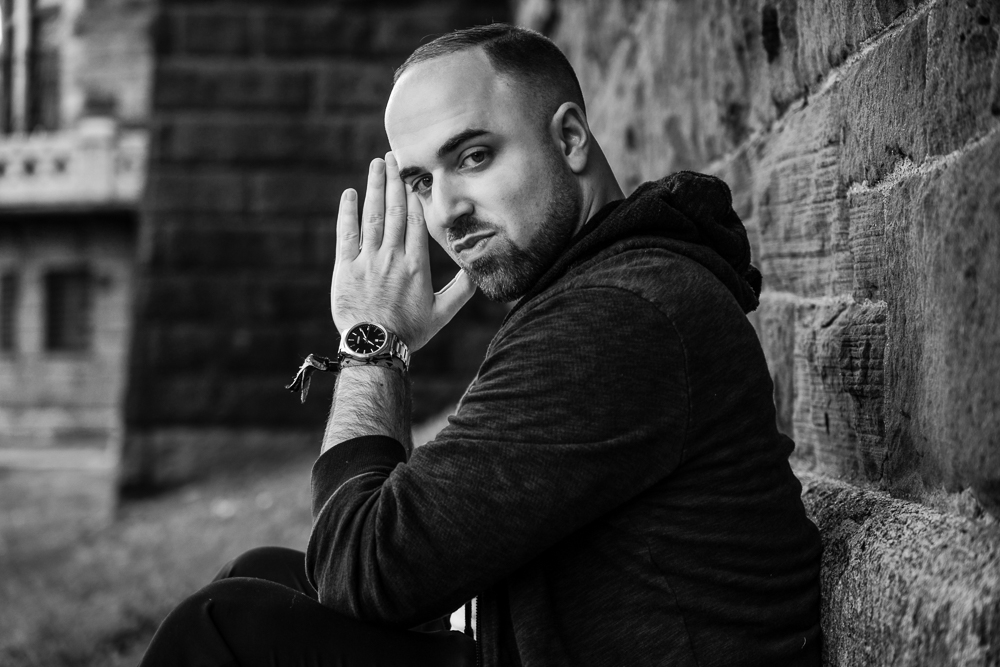He’d previously started two businesses, both of which failed. Taking up a sales role in New York was hardly ideal, but he needed to support himself. But making money wasn’t enough – he had to do something which aligned with his dreams and passions.
He had to follow his calling.
What Is Your Calling?
“We all have a call for us to play bigger in our life,” McGuinness said. “This call leads to our remembrance of who we’ve always been, that remembrance leads us to a truth we feel deeply strong about, that truth expressed becomes our mission. Ultimately, our calling leads us to who we’re supposed to be in life.”
Dr. Amy Wrzesniewski, an Associate Professor of Organizational Behavior at Yale University’s School of Management, classified three main work orientations which most individuals adhere to.
- Job Orientation: Individuals here see work as a means to an end. Those with this orientation do their job to get paid to support their personal lives.
- Career Orientation: Those with career orientations are after prestige and success. They’re the ones clocking in overtime and trying to climb the corporate ladder.
- Calling Orientation: Workers with a calling orientation view their job as integral to their lives and identity. Their work serves as a form of self-expression and satisfaction.
According to a 2013 survey from Salary.com, only 38.5% of Americans felt “personally fulfilled” by their career – a sharp decline from 59.2% in 2012. Similarly, a 2013 Gallup poll found that only 13% of U.S. workers felt “engaged” in their job.
Both polls indicate that most Americans follow a job orientation – their nine-to-five is little more than a way to make money.
Even career-oriented people feel this way too. After all, money and prestigious job titles are great motivators, but only mean so much.
Bronnie Ware’s book The Top Five Regrets of the Dying explores what hospice patients wish they’d done differently in their lives. The most common answers weren’t money, status, revenge, looks, or fame.
The five most common concerns, in order, were:
1. “I wish I’d had the courage to live a life true to myself, not the life others expected of me.”
2. “I wish I hadn’t worked so hard.”
3. “I wish I had the courage to express my true feelings.”
4. “I wish I stayed in touch with my friends.”
5. “I wish I let myself be happier.”
The first two points often come from job-oriented and career-oriented workers. They spend their whole lives slaving away only not to accomplish their dreams. People end up realizing that they spent so much time avoiding their calling until it’s too late.

Making an Identity Shift
“To effectively make this jump out of your career into your calling, it is a total identity shift,” said McGuinness. “We have to go from who we think we are, to who we remember ourselves to be.”
An identity shift is just that – a change in how you view yourself and your purpose. It’s the process of going from who we think we are to how we’ll remember ourselves.
For example, children aspire to enter jobs like doctors, veterinarians, police officers, firefighters, scientists, musicians, athletes, and astronauts.
These choices aren’t based on particular skill sets, but rather adults and characters whom children admire. Children want to save people’s lives, discover new things, play sports, and create music.
But how many adults follow their childhood dreams? The most common jobs in America include retail, fast food counter workers, cashiers, office clerks, and waiters and waitresses. Nobody idolizes these jobs, but end up in them anyway.
When growing up, most people go through an identity shift. They forget about their lofty childhood dreams and pursue manageable and achievable goals. Many forgo following their passions to seek jobs with good pay, flexibility, and benefits.
Yet, things are changing. Workers haven’t lost their sense of purpose, even when stuck in soul-draining corporate jobs. Currently, 90% of employees are willing to accept lower pay for meaningful work.
Similarly, a LinkedIn survey found that 74% of candidates want a job where they feel like their work matters. The study also found that sense of purpose deepens with age – 48% of baby boomers, 38% of Gen X, and 30% of millennials prioritized purpose overpay.
The burning passion lies within everyone, even if they don’t express it. The only way to unlock it is to undergo an identity shift.
“From this shift, I connected to myself in the deepest way,” said McGuinness. “From this shift, I also got my answer! I uncovered a map! A map in which anyone can use to get out of their career and into their calling!”

A Greater Societal Consciousness Shift
McGuinness believes there are two significant shifts rapidly taking place in our society.
“The first shift is a new economy emerging in front of our eyes faster than ever,” he said. “The rise of the internet and social media has never made it easier to have anyone monetize something they are good at.”
Now that the workforce is more internet-based than ever, employees can acquire all the needed skills over a computer. The pandemic likely changed the way the world views work forever, and many employers have adopted a permanent telecommuting policy.
McGuinness also commented on how automation is shrinking the workforce.
“In this new economy, the middle class is shrinking, and it is becoming very binary,” he said. “You are either a producer or a consumer in this new economy. We believe the best way to produce in this new economy is to deliver your gifts that come from your most authentic and aligned place. We call this place your soul.”
The second and more decisive shift is something McGuinness calls a “massive consciousness movement.”
“More and more people are waking up to realizing they are here for something bigger,” he said. “It’s bigger than just their salary or benefits package. This inquiry for more in their life is what we at Soul Venturer call ‘the calling.’”
Combine these two movements, and you’ll see a significant shift in the status quo. People who are fed up with corporate jobs – or find themselves without a job thanks to automation – are now seeking new ways to redefine work.
The internet now allows people an unprecedented amount of independence. There are countless stories of people who made it big from merely making videos, streaming games, or selling items online.
“In this new economy and society, we believe we are going to see more and more highly talented professionals leave the workforce to answer their calling for more than they are getting, beyond the vehicle of their career,” said McGuinness. “We want to allow these two powerful aspects of our lives, business, and spirituality to bring us there.”
Now, McGuinness is teaching thousands of disaffected workers how to leave their career for entrepreneurship. Soul Venturer helps people to discover their calling, monetize their passions, and transform their lives. Will you answer the call?
Patrick W. Dunne is a freelance writer who covers business, technology, and productivity. He has bylines in Listverse, Psych Central, Digital Privacy News, The Good Men Project, and others. You can follow him on LinkedIn or read his blog


